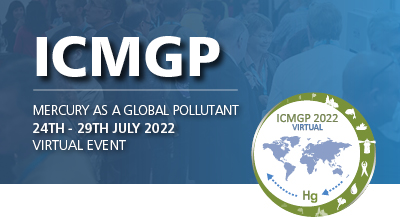| Abstract Title: | Exploring the Functional Diversity of Microbial Communities in Rice Paddies Along a Mercury Contamination Gradient |
| Presenter Name: | Rui Zhang |
| Company/Institution: | University of Ottawa |
| Session: | Special Session - Meta-omic and geochemical approaches to linking microbial activity to biogeochemical mercury cycling |
| Co-Authors: | Rui Zhang |
Abstract Information :
Methylmercury is a potent neurotoxin primarily derived from inorganic mercury by anaerobic bacteria and archaea with hgcAB genes, the genetic markers for mercury methylation. As a flooded system, rice paddies provide an ideal habitat for anaerobes including mercury-methylating microbes. Consequently, the consumption of rice, especially rice cultivated in mercury-contaminated fields, has been identified as a methylmercury exposure pathway in humans. However, the metabolic capabilities of mercury methylators and their co-occurring microbiome in mercury-contaminated rice paddies remain unclear, impeding our ability to evaluate methylmercury dynamics, and develop optimal remediation strategies in soil environments. Here, we measured geochemical parameters and performed metagenomic analyses of microbial communities in three rice paddies along a mercury concentration gradient in Guizhou, China. At the community level, we demonstrated site-specific characteristics of taxonomic and metabolic profiles. With genome-resolved metagenomics, we identified putative mercury methylators from the phyla Desulfobacterota and Nitrospinota and evaluated their metabolic potentials. Our phylogenetic analysis revealed a uniform distribution of the hgcA genes across the mercury gradient, suggesting that the evolution of hgcA was unlikely to be driven by the selective pressure from mercury. Furthermore, we identified a gene coding for a potential transcriptional regulator, unrelated to ArsR/SmtB, that tends to occur upstream of hgcAB and may potentially act as an hgcAB regulator. Characterizing such a regulator is important to identify the selective pressure driving hgcAB evolution. Our work overviewed the microbial functional diversity and revealed a prospective regulator of hgcAB in mercury-contaminated rice paddies, which have implications for controlling methylmercury in contaminated systems.



